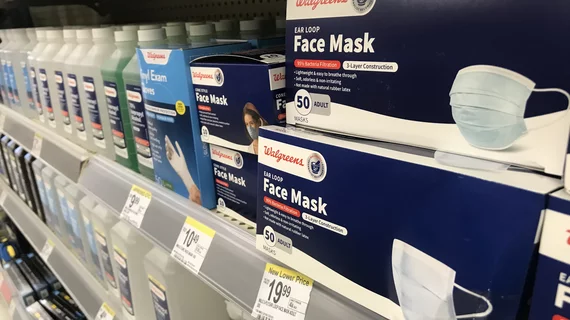Manufacturers, health organizations unite to address medical supply chain
Ochsner Health has teamed up with medical manufacturers and other healthcare organizations to address critical medical supply needs.
The newly formed group, the American Medical Manufacturers Association (AMMA), includes Altor Safety, Aquaspersions USA, Blue Star NBR, Lutema, Ochsner Health, Premium-PPE, SafeSource Direct, United Safety Technology and Vizient as its initial members. AMMA represents domestic personal protective equipment (PPE) manufacturers, and the group intends to increase U.S. stockpile and domestic manufacturing of critical medical supplies.
AMMA was formed after the United States faced a PPE shortage at the start of the COVID-19 pandemic when unprecedented demand for medical supplies went unmet temporarily.
"The Covid-19 pandemic exposed a giant hole in our U.S. supply chain and highlighted our country's reliance on foreign manufactured medical supplies and equipment," Eric Axel, executive director of AMMA, said in a statement. "We must ensure that we are prepared as a country for future pandemics––and that starts with investing in U.S. PPE. This is the only way for the U.S. to bolster our public health, security and competitiveness."
According to AMMA, the new group will ensure there is a strong supply chain for U.S.-manufactured PPE. The group also singled out China for making cheap PPE that has undercut American manufacturing. AMMA stated that the U.S. health supply chain must be “ethical, equitable and better prepared for the future.”
"This is a critical time for domestic medical manufacturers,” said Dan Izhaky, founder and CEO of United Safety Tech. “Our industry needs the support of Congress and the Administration to help take back China's dominating control of the PPE manufacturing market."
Ochsner Health, a not-for-profit health system based in the New Orleans metropolitan area, is the lone health system among the initial partners of AMMA. Its supply company, SafeSource Direct, manufactures PPE.
The move comes after the U.S. PPE shortage prompted an urgency for more domestic manufacturing. President Biden recently touched on the need for increasing domestic manufacturing during his February State of the Union speech. The address brought about praise from the Healthcare Supply Chain Association.
“Expanding domestic manufacturing capabilities in all sectors, including healthcare, is essential to public health emergency and natural disaster preparedness efforts," Todd Ebert, CEO and president of HSCA, said in a statement following Biden’s SOTU speech. "As the U.S. transitions out of the public health emergency this spring, GPOs will continue to support America's hospitals and healthcare providers by reducing supply costs while ensuring providers have access to the high-quality products and services they need to care for their patients."

